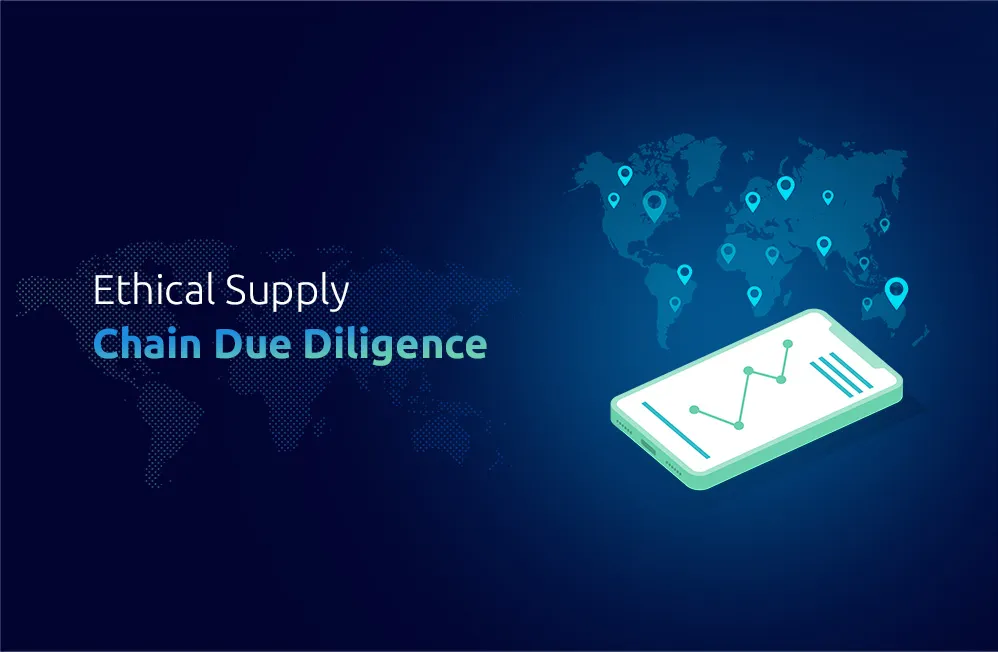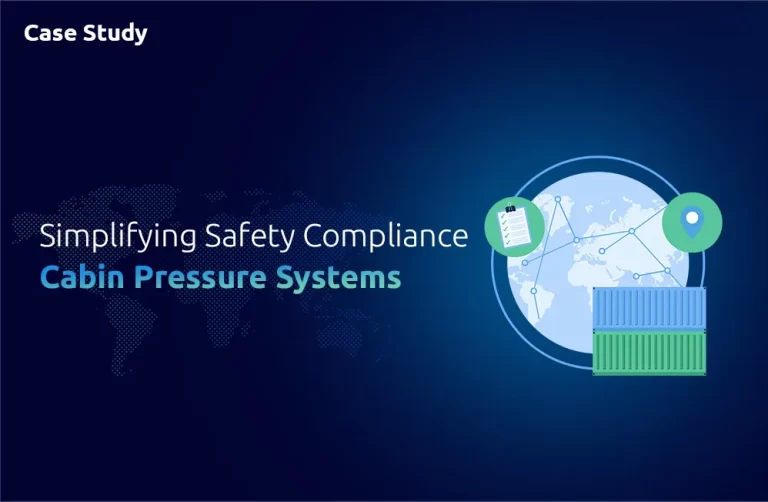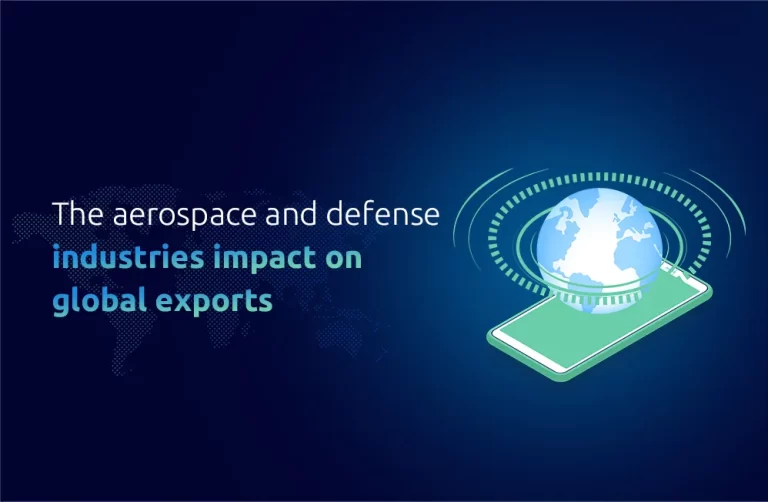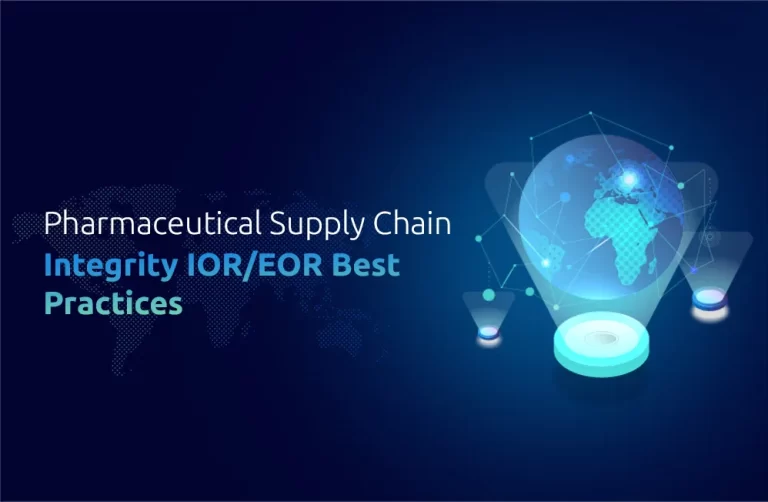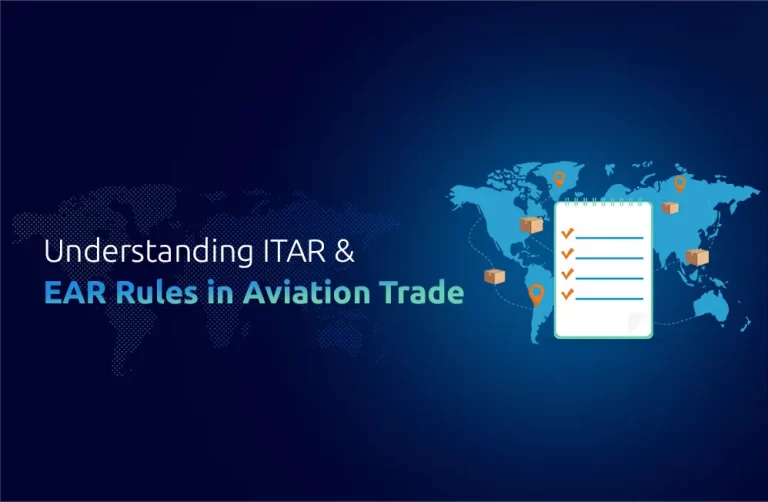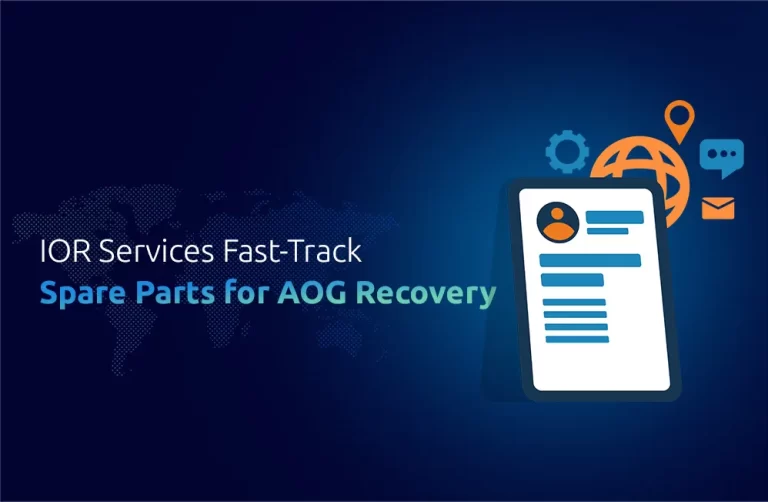Insight
Ethical supply chain management is vital in global trade operations, which businesses must use to achieve responsible & sustainable operations. Different regulations, cultural differences, & standards of practice between locations create distinct obstacles for cross-border trade operations. Through due diligence, businesses can achieve their greatest ethical obligations, lower risks, and increase supply chain sustainability at the same time.
It is about choosing suppliers based on cost-effectiveness; also, the approach studies all product development stages from material extraction to consumer delivery. Companies face higher requirements for workplace conditions & environmental effects because of growing corporate social responsibility / CSR standards.
The Importance of Due Diligence in Cross-Border Trade
Cross-border trade due diligence is a detailed analysis of every level of the supply chain to ensure the company runs legally, ethically, and long-term. This is especially crucial in foreign markets, where laws and industry customs vary greatly. Doing the homework is not limited to compliance ; it requires a dedication to sustainability, worker fairness, and environmental concern.
Cross-border trade can frequently include numerous intermediaries, suppliers, and countries, which makes it increasingly complex for businesses to have full control and visibility of their supply chains. Businesses must actively consider the risk of indirectly contributing to human rights abuses and environmental harm. Responsible due diligence requires companies to be transparent about the source of their products and do the least damage in all their business activities.
Principles of Ethical Supply Chain Management
Ethical supply chain management is based on fair, sustainable, & responsible practices, from production to distribution. Transparency is considered a quality in a moral practice, as it adds visibility on the origin of all raw materials & manufacturing processes. Such clarity leads to greater trust from consumers, governments, and advocacy organizations, where all parties are educated about what the company is doing. Fair labor practices also play an important role, with companies ensuring that employees are paid fairly and work in a secure work environment that cannot be controlled. Identifying and ensuring compliance with these practices throughout the supply chain is vital to maintaining our ethics.
The environment is also a principle; companies pledge to conduct their business sustainably with minimal environmental impact. This involves waste reduction, resource conservation, water conservation, and carbon emissions reduction through responsible sourcing and sustainable manufacturing. Supplier engagement is crucial; ethical businesses should forge close working relationships with their suppliers to ensure they comply with ethically sound practices, providing support such as training and tools to enhance standards. Regular inspections and reviews help keep compliance up to date. Finally, regulatory compliance is essential, as an organisation should comply with local and international standards related to customs, labour, and the environment. Non-compliance leaves defaulting banks open to legal action, subsequent fines, and negative publicity.
Implementing Due Diligence in Cross-Border Trade
To conduct due diligence efficiently, businesses need to manage their supply chain systematically. Some steps companies can take to assure compliance & sustainability:
Mapping the Supply Chain: The initial leg of due diligence is full awareness of the supply chain. This means tracking all the suppliers, contractors, and partners, from those providing raw materials to manufacturers and companies distributing products.
Risk Assessment: After the supply chain is mapped, an extensive risk assessment must be performed to pinpoint problems related to human rights, labour practices, and environmental impact. Such analysis prioritises where attention is most needed and where due diligence needs to be applied.
Supplier Audits and Oversight: Ongoing audits of suppliers are an essential aspect of due diligence. These viewings should ask whether suppliers are behaving ethically within their capabilities. It should also be ongoing and monitored to ensure practices continue to be ethical and sustainable.
Creating an Ethical Code of Conduct: Corporations must develop an ethical code of conduct, with their suppliers’ point of view included in it. This code should address issues like worker rights, the environment, and anti-corruption. Vendors have to agree to these standards.
Engagement and Collaboration: Developing long-term connections with suppliers based on trust & respect is the foundation of good faith in supply chain management. Collaboration is how we all will face challenges and how, over time, we can all get better. When suppliers struggle to fulfil their ethical commitments, companies should provide them with support and resources.
Conclusion
Companies must acknowledge ethical supply chain management as essential for completing operations that maintain sustainability and transparency while being socially responsible. Implementing thorough due diligence protects businesses from risks while improving their reputation and benefits workers and environmental health. As a priority at One Union Solutions, we deploy ethical standards to guarantee our clients maintain both compliance and trust in our practices with international regulations.
Did You Know,
Research indicates that international labor standard compliance presents adaptability challenges to more than 40% of global market based companies.
FAQs
What is due diligence in the supply Chain?
Supply chain due diligence assesses & tracks suppliers’ work to ensure it meets ethical, legal, and environmental standards.
In what aspects does supply chain management practice need to follow ethical principles?
The survival & success of businesses heavily depend on responsible supply chain management since it ensures companies uphold fair labor and environmental standards.
Which methods should companies use to make their supply chains more transparent?
Companies promote transparency with extensive disclosures surrounding their supply chain processes, planned monitoring activities, and an obligation for suppliers to meet some ethical commitment.
What barriers exist to cross-border due diligence?
Due diligence across borders is challenging due to cultural differences, intricate regulatory environments, and limited resources to ensure full supplier compliance.
What methods do businesses use to fulfil the compliance requirements of international labour regulations?
Businesses maintain compliance through regular audits, strong cooperation with suppliers, and continuous monitoring of labour laws across their operating territories.

